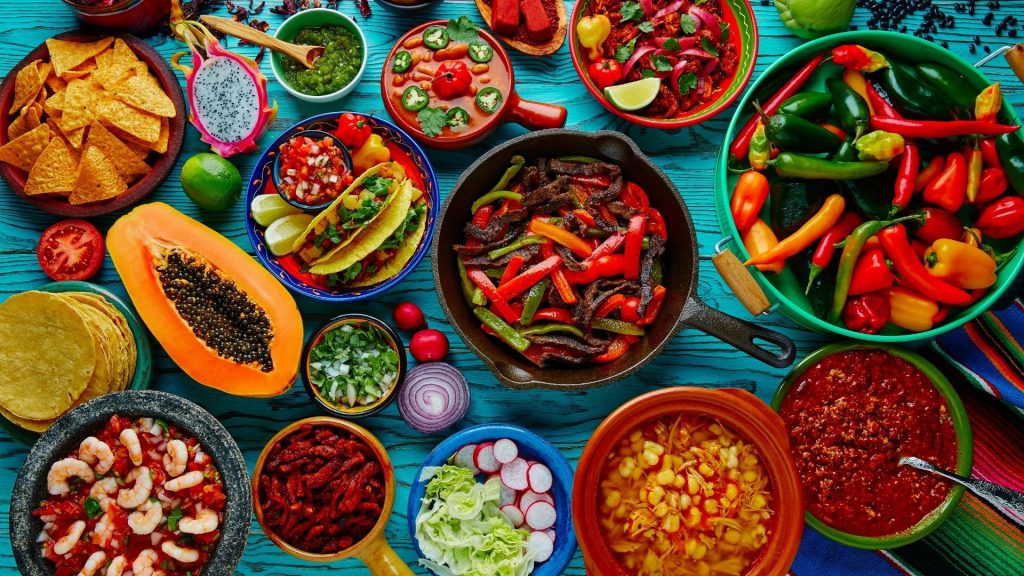- Keeping Lunch Boxes Healthy - September 14, 2023
- Chat GPT: The Future of Business Communication is Here! - February 16, 2023
- What are Cognitive Enhancers or Nootropic Supplements and How do They Work? - November 10, 2022
The issue of diet is constantly with us. We are bombarded by announcements about diets that promise miraculous weight loss, supplements that will make us superhuman, and superfoods that will transform us. This deluge of information is bewildering and often contradictory. As a consequence, we eat what is convenient rather than what will bring us long-term health.
We have all become much more conscious about what we eat. We want to enjoy our food, and we want to receive the nutritional health and sustainability benefits of good food.


Our relationship with food was formed in our childhood. Our meals at home as a child largely determine what we eat now. So we bring with us all the likes and dislikes of what we consumed at the family table. Whole generations go through life without enjoying brussels sprouts or broccoli!
Let’s take a common-sense approach to diet and formulate a simple but effective way of healthy eating. Let’s set some big-picture criteria for the type of food we want to enjoy:
- Our food should be nourishing, containing the fibre and nutrients we require.
- Our food should be simple to prepare, to fit in with our busy lifestyle.
- Our food should be sustainable, produced with no or minimal harm to our planet.
- Our food should be tasty and enjoyable.
Let’s briefly review some food types and expand on the role they play in our diet.
Red meat
Who doesn’t enjoy a tasty red steak! However, too much red meat does increase the risk of colorectal cancer, increased cholesterol, and other health problems. The World Health Organisation’s International Agency for Research on Cancer (IARC) has found that consumption of processed meat is carcinogenic to humans and that consumption of red meat is probably carcinogenic to humans.
The report differentiates processed and red meats as follows:
- Red meat includes beef, veal, pork, lamb, mutton, horse and goat meat.
- Processed meat has been transformed through salting, curing, fermentation, smoking, or other processes to enhance flavour and improve preservation.
Processed meat contains cancer-causing chemicals such as N-nitroso-compounds (NOC) and polycyclic aromatic hydrocarbons (PAH). This puts that tasty piece of salami in a new light.
The cooking of red meats at high heat over flames produces carcinogenic chemicals, including heterocyclic aromatic amines (HAAs) and PAHs. This is not good news for those of us who enjoy a regular braai (barbecue).
The bottom line is that red meat and processed meat are not good for us. The lifestyle choice is to reduce or eliminate meat consumption to enjoy a longer and healthier life.
Roughage
Roughage plays a key role in our overall health. We get our roughage by eating nuts, legumes, whole grains, and fresh fruits and vegetables. Fibre keeps the food moving through the digestive tract and prevents diarrhea and constipation.
It reduces the risk of several cancers, including prostate, mouth, breast, stomach, colon, and others. It helps maintain healthy cholesterol and blood sugar levels as it binds to the bile acids and removes the cholesterol from the body.
It also limits the absorption of sugar into your bloodstream. The lifestyle choice here is to consume more roughage-containing foods. Sadly, red meat contains no roughage.
Fats
Dietary fats are essential for body energy and to support cell growth. They also help protect our organs and help keep our bodies warm. There are four major dietary fats in the foods we eat:
- Saturated fats – not so good
- Transfats – not so good
- Monounsaturated fats – good for us
- Polyunsaturated fats – good for us
Here’s a useful tip: The bad fats, saturated and trans fats, are solid at room temperature (like a lump of butter), while monounsaturated and polyunsaturated fats are more liquid (like sunflower oil).
The bad fats, saturated fats and trans fats raise bad cholesterol (LDL) levels in your blood. Monounsaturated fats and polyunsaturated fats can lower bad cholesterol levels and are beneficial when consumed as part of a healthy dietary pattern.
The lifestyle choice here is to judiciously increase the intake of mono and polyunsaturated fats, and decrease the saturated and trans fats.
Vegetables
Vegetable is a collective term for the edible parts of plants, including their leaves, roots, stems, fruits, or seeds. Vegetables are a staple food in every culture. They are low in calories but high in nutrients.
A balanced diet of different varieties of vegetables is one of the best ways to source nutrients from your food because vegetables are full of essential vitamins, minerals, and antioxidants that provide many important health benefits to your body.
For instance, carrots are known for being very high in vitamin A, which plays an important role in eye health, as you grow older.
Vegetables are a good source of dietary fibre, a type of carbohydrate that helps pass food through your digestive system. Studies show that fibre may also improve vitamin and mineral absorption in the body, which could potentially raise your daily energy levels.
Diets high in vegetable content have many advantages
They can reduce your risk of heart disease
Beneficial foods (fruits, veggies, beans, nuts, and whole grains) help to reduce heart disease. Vegetable diets high in fibre have a positive impact on both blood lipids and gut health, which may, in turn, reduce the risk of future cardiovascular disease. That means loading up on whole grains, legumes, fruits, vegetables, and healthy oils (such as olive oil)
They help lower cholesterol
Plants like soy, beans, and tofu, oats, barley, okra, eggplant, apples, and berries help lower cholesterol. This, in turn, results in a decreased probability of heart failure, or coronary heart disease.
They can improve your blood sugar level
A high vegetable diet has both physical and psychological benefits for those living with type 2 diabetes. Plants are lower in saturated fats than animal foods, which raises cholesterol levels and your risk of developing type 2 diabetes.
They could help you lose weight
The risk of obesity decreases with a plant-based diet. Plant eaters tend to weigh less. Vegetables help you feel full for longer. The fibre and water in vegetables fill you up more efficiently than eating processed carbs that are deficient in fibre.
Combining vegetables with protein and healthy fats will keep you satisfied until it’s time for your next meal. If you’re eating your vegetables each day, you shouldn’t experience that late-afternoon energy slump (and cravings for sugar) that you may encounter when eating processed carbohydrates.
They may decrease your risk of cancer
Plant foods do not have the cancer properties of red and processed meat. Plant diets are full of cancer-protective nutrients, including fibre, vitamins, minerals, and phytochemicals which can be found in vegetables, fruit, grains, beans, nuts, and seeds.
Let’s go back to the criteria we set at the beginning:
- Our food should be nourishing, containing the fibre and nutrients we require.
- Our food should be simple to prepare, to fit in with our busy lifestyle.
- Our food should be sustainable, produced with no or minimal harm to our planet.
- Our food should be tasty and enjoyable.
A high plant diet meets every one of the criteria. Food for thought and food for health.
So there you have it, a diet rich in plants and vegetables is very good for you. Next time you go to the supermarket, ignore the meat counter. Go straight to the fruit and vegetable section. See the eye-catching array of colourful apples, carrots, tomatoes and broccoli. Start your high plant diet adventure! Your body will thank you.


